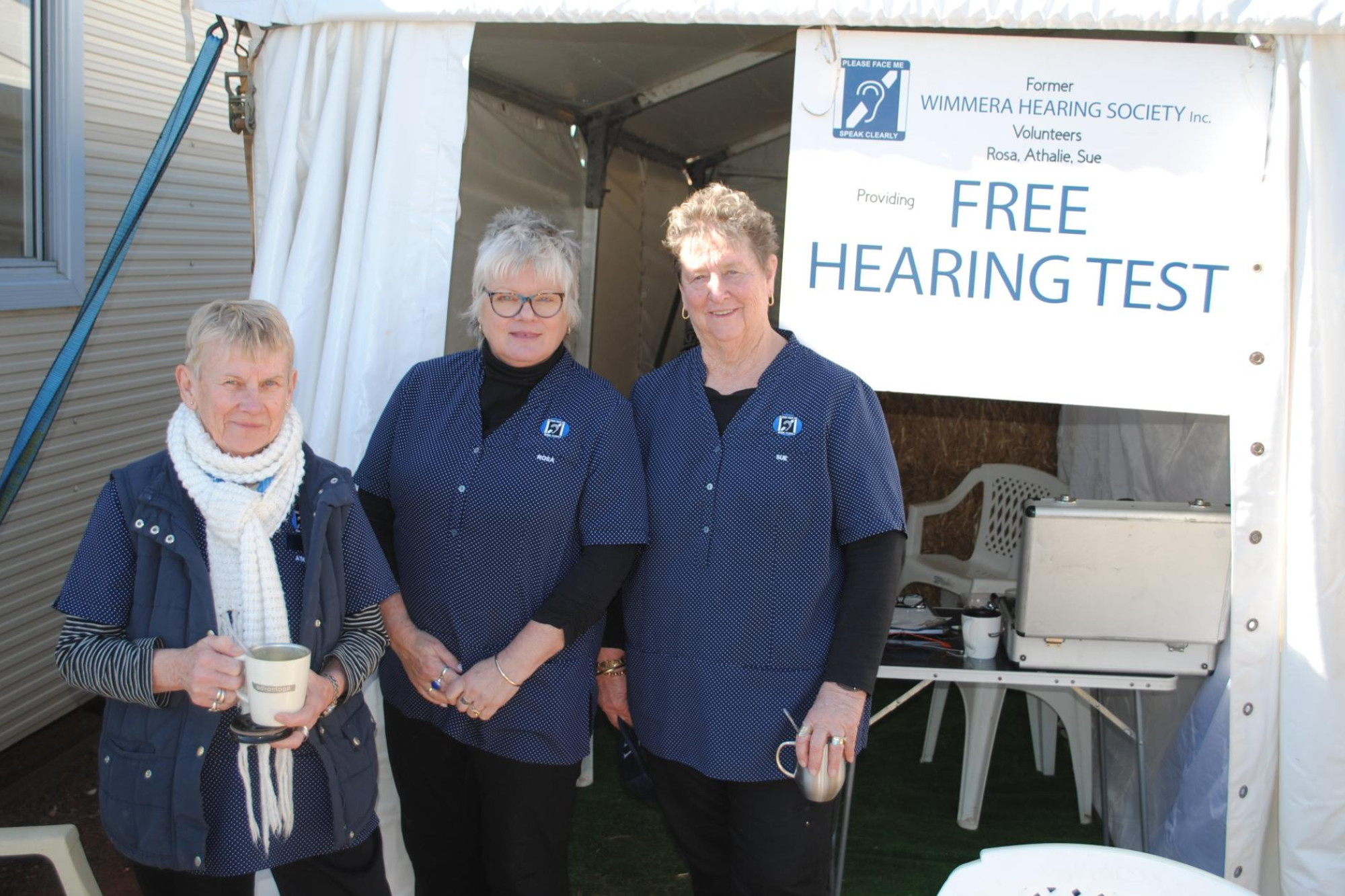General News
5 August, 2024
The three ladies working hard to save the hearing of Victoria's farmers
Farmers test their hearing at the Mallee Machinery Field Days.

Three West Victorian women are working hard to save the hearing of the state's farmers.
Volunteering across the region, Sue Ward, Murra Warra, Athalie Lane, Portland, and Rosa Vaughan, Heywood, were providing free hearing tests at a number of field days.
They saw hundreds of farmers at the Mallee Machinery Field Days in Speed this week with queues of farmers lining up to get checked.
The former nurses, all trained in hearing audiology, took on the Wimmera Hearing Society mantle after the former organisation folded 12 months ago.
Ms Ward said the former society gifted her a set equipment and she and the team had kept the show on the road since.
"There's three of the volunteers that still provide hearing screenings around the field days, for the farmers," she said.
"We know it is so, so important for farmers to look after their ears. We're all over the place which is great."
She said it was "so important" for farmers to get their hearing checked.
"They sit out on the headers, the tractors, and all the rest of it, and are exposed to [loud noise], and they don't realise that they're losing their hearing," she explained.
"You don't realise because it goes gradually."
She said farmers were a unique clientele who often shied away from getting the help they needed.
"We're busy here with the farmers because we don't sell hearing aids or anything like that," she said.
"They know they can come to us, get the hearing tests, get the results, and then they can go home and put them away for 12 months and come back and have it done again to monitor it.
"So, we've sort of evolved and tried to make it into a hearing health check as part of their annual health check, which is working well."
Ms Ward suggested that farmers were getting better at protecting their ear health.
"They are wearing ear protection a lot better and the younger generation are much better," she explained.
She said if farmers were exposed to noise, they should always wear ear protection and be aware of the noise around them.
Farmers also needed to make sure the ear protection equipment they had was up to date and ensure it had not been in the cupboard for 20 years.
"Most farmers will have their ear protection in their pocket or in the tractor or machinery and they just pop it on," she said.
"They're very good at it now but the older generation is where the damage has been done.
"Those farmers can get hearing aids. The younger generation are the ones that are threatened."
Ms Ward said many farmers came to the field day hearing test tent annually, often encouraged by their children or partner.
"They've had deafness all their lives and they're comfortable," she said.
"We also give them a lot of communication strategies because some of them just can't afford hearing aids. It's just not in their realm."
She said if farmers had difficulty hearing, they should face whoever they were speaking to and that would make it a "whole lot easier for them".
"Not having background noise, that helps too," she said.